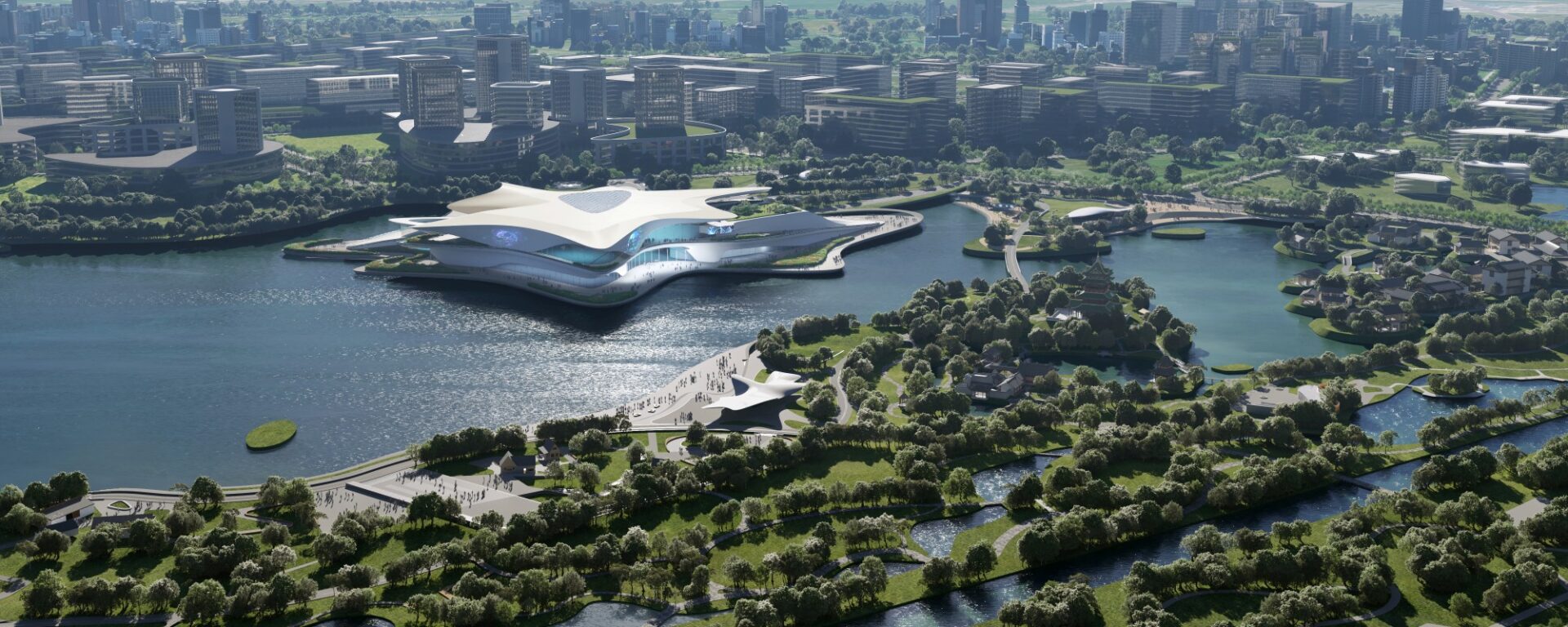A Sci-Fi Museum in Chengdu that Responds to the Site by ZHA
The new Chengdu Science Fiction Museum designed by ZHA, situated on Jingrong Lake within the Science & Innovation New City of Chengdu, a city that is a leading incubator of science fiction writing in China, appears to float above the surface of the lake. This new Museum will be open to host the WorldCon, the annual convention of the world’s largest science fiction event.
Surrounded by mountain ranges and forests, Chengdu has cultivated a unique local culture rooted in its rich history and has grown to a city of over 20 million residents and become important global centre of scientific innovation and research.
Integrating with the natural landscapes along the lakeshore, the museum’s design by Zaha Hadid Architects defines nodes of activity connected by pedestrian routes that extend from the city and adjacent metro station through the surrounding parkland into the heart of the building; creating a journey of discovery that weaves between indoor and outdoor plazas at multiple levels to link the museum’s exhibition galleries, educational facilities, cafes, and other amenities.
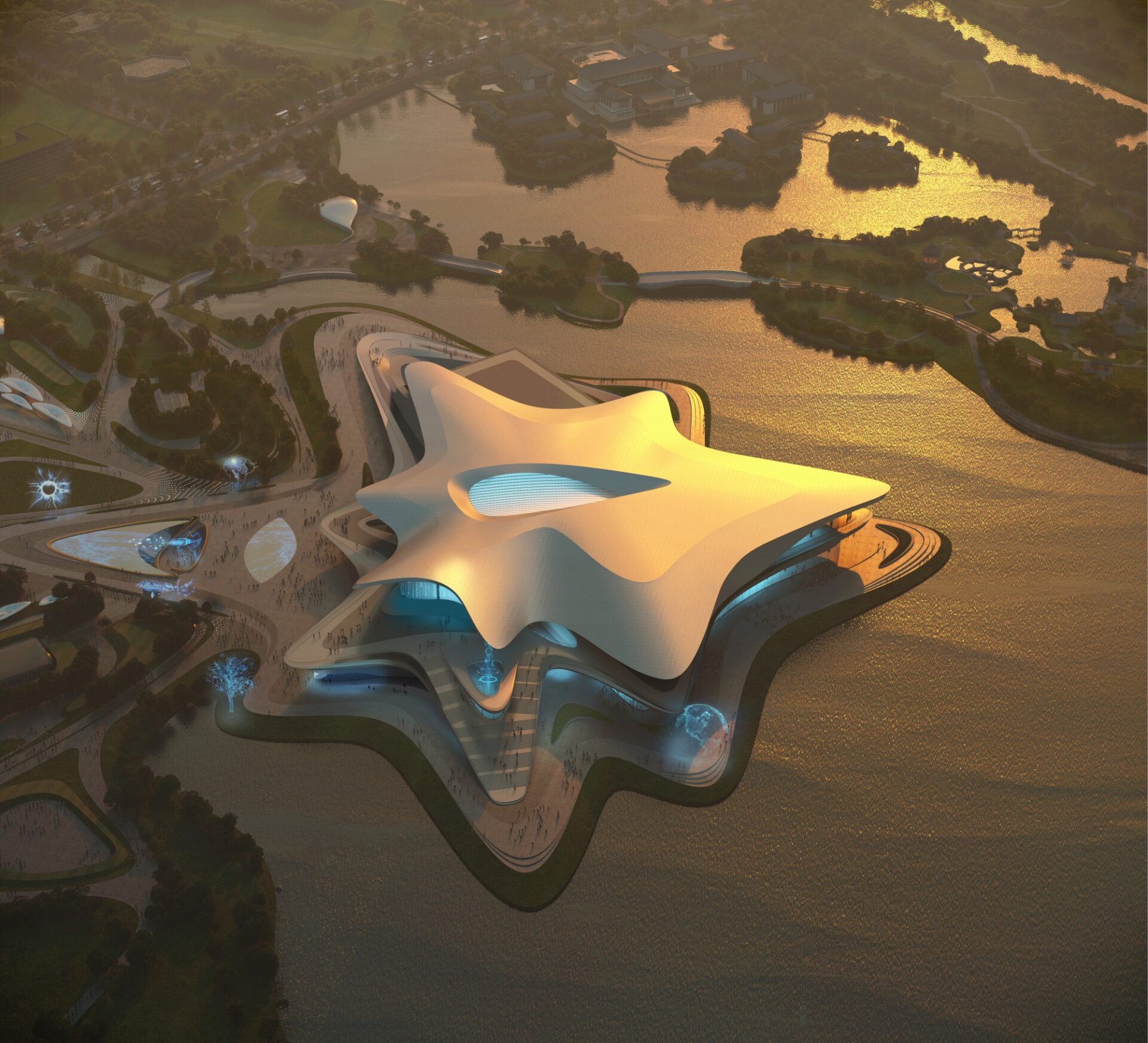 “Bringing together programmatic and functional clarity while responding to its unique site conditions, the museum appears to float above from the surface of the lake. The fluid forms of its roof radiate from a central point within, emulating an expanding nebula cloud with a star at its centre – transforming the museum into a ‘star cloud’ that disperses energy fields into its many different zones; guiding visitors through a portal that connects our lived experience with our imagination,” says ZHA.
“Bringing together programmatic and functional clarity while responding to its unique site conditions, the museum appears to float above from the surface of the lake. The fluid forms of its roof radiate from a central point within, emulating an expanding nebula cloud with a star at its centre – transforming the museum into a ‘star cloud’ that disperses energy fields into its many different zones; guiding visitors through a portal that connects our lived experience with our imagination,” says ZHA.
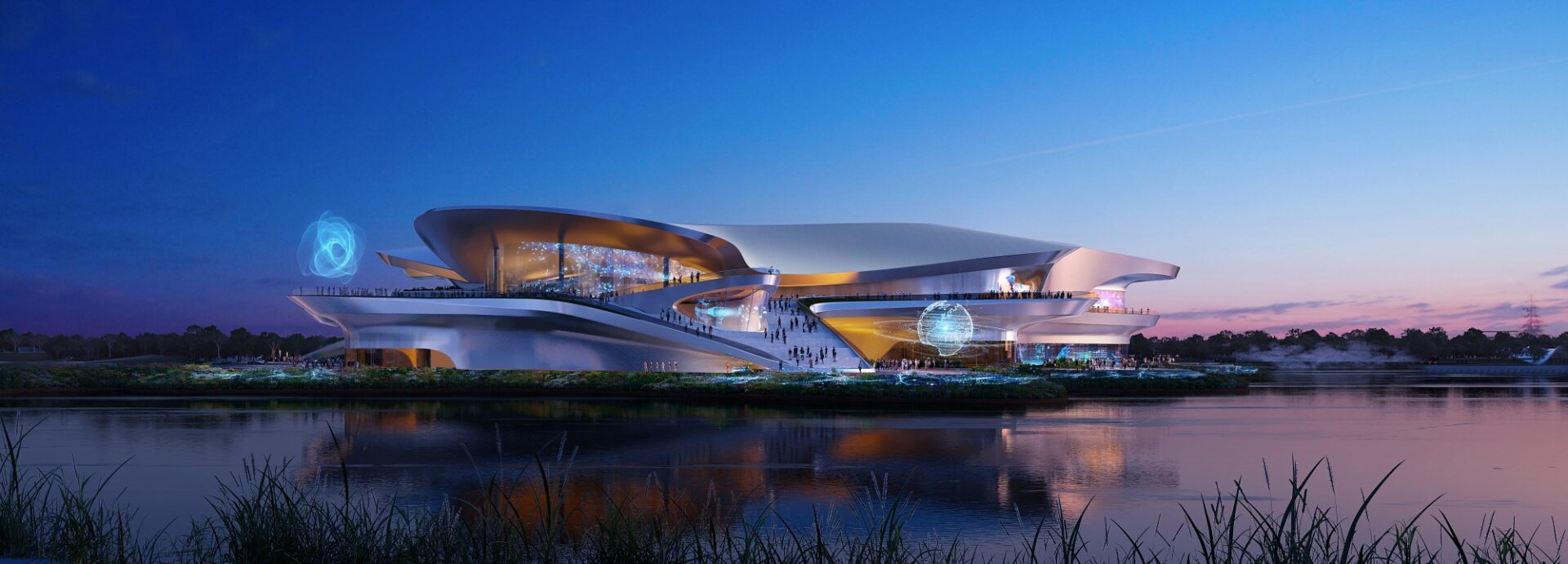 Incorporating maximum flexibility to host the widest variety of exhibitions, conferences and events, the 59,000 sq. m Chengdu Science Fiction Museum includes exhibition galleries, theatre, conference hall, and supporting ancillary spaces. The sky-lit central atrium and its large window facing the spectacular Xiling Mountain connect the museum’s interiors with their surrounding environment.
Incorporating maximum flexibility to host the widest variety of exhibitions, conferences and events, the 59,000 sq. m Chengdu Science Fiction Museum includes exhibition galleries, theatre, conference hall, and supporting ancillary spaces. The sky-lit central atrium and its large window facing the spectacular Xiling Mountain connect the museum’s interiors with their surrounding environment.
Meeting the highest three-star standards of China’s Green Building Program, the museum’s design has been developed through detailed digital modelling analysis to maximise efficiencies in composition, site conditions, solar irradiation and structure. Natural hybrid ventilation optimises Chengdu’s mild subtropical climate to provide comfort for visitors and staff throughout the year. Photovoltaics embedded within the museum’s large roof canopy contribute to meeting the building’s energy demands. The dimensions of this roof have been calculated to shade the glazed facades in summer. Landscaped with plants native to the region, the design collects and stores rainwater for natural filtration and reuse, enabling Jingrong Lake to become an integral part of Chengdu’s sustainable drainage system that will mitigate flooding and increase biodiversity throughout the city.
 Established in 1939, the annual convention is the world’s largest science fiction event. Named after Hugo Gernsback, founder of the pioneering science fiction magazine ‘Amazing Stories’, the Hugo Awards have been presented at Worldcon by the World Science Fiction Association since 1955 and are the highest recognition for science fiction and fantasy literature, as well as work in other media.
Established in 1939, the annual convention is the world’s largest science fiction event. Named after Hugo Gernsback, founder of the pioneering science fiction magazine ‘Amazing Stories’, the Hugo Awards have been presented at Worldcon by the World Science Fiction Association since 1955 and are the highest recognition for science fiction and fantasy literature, as well as work in other media.
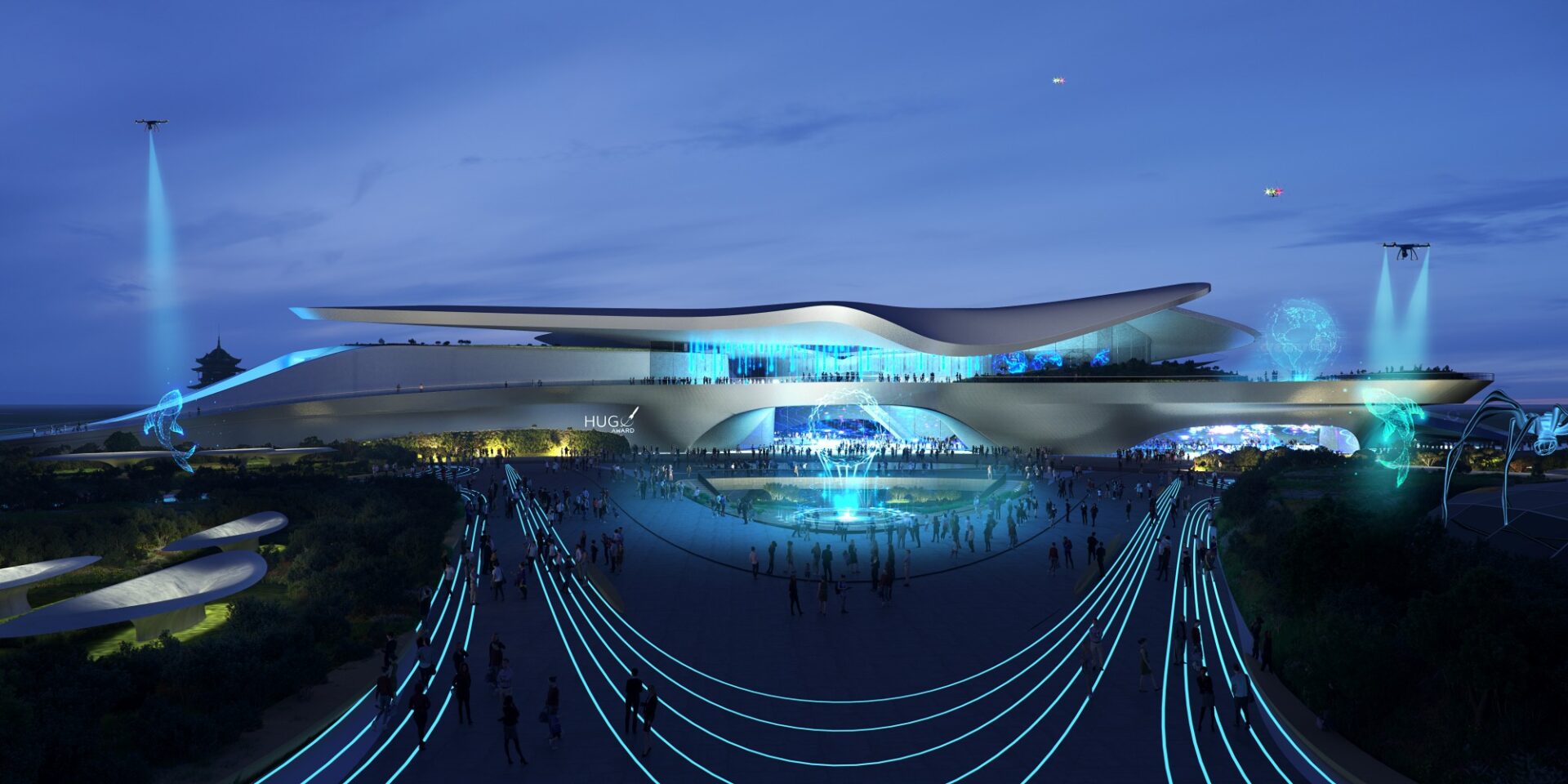
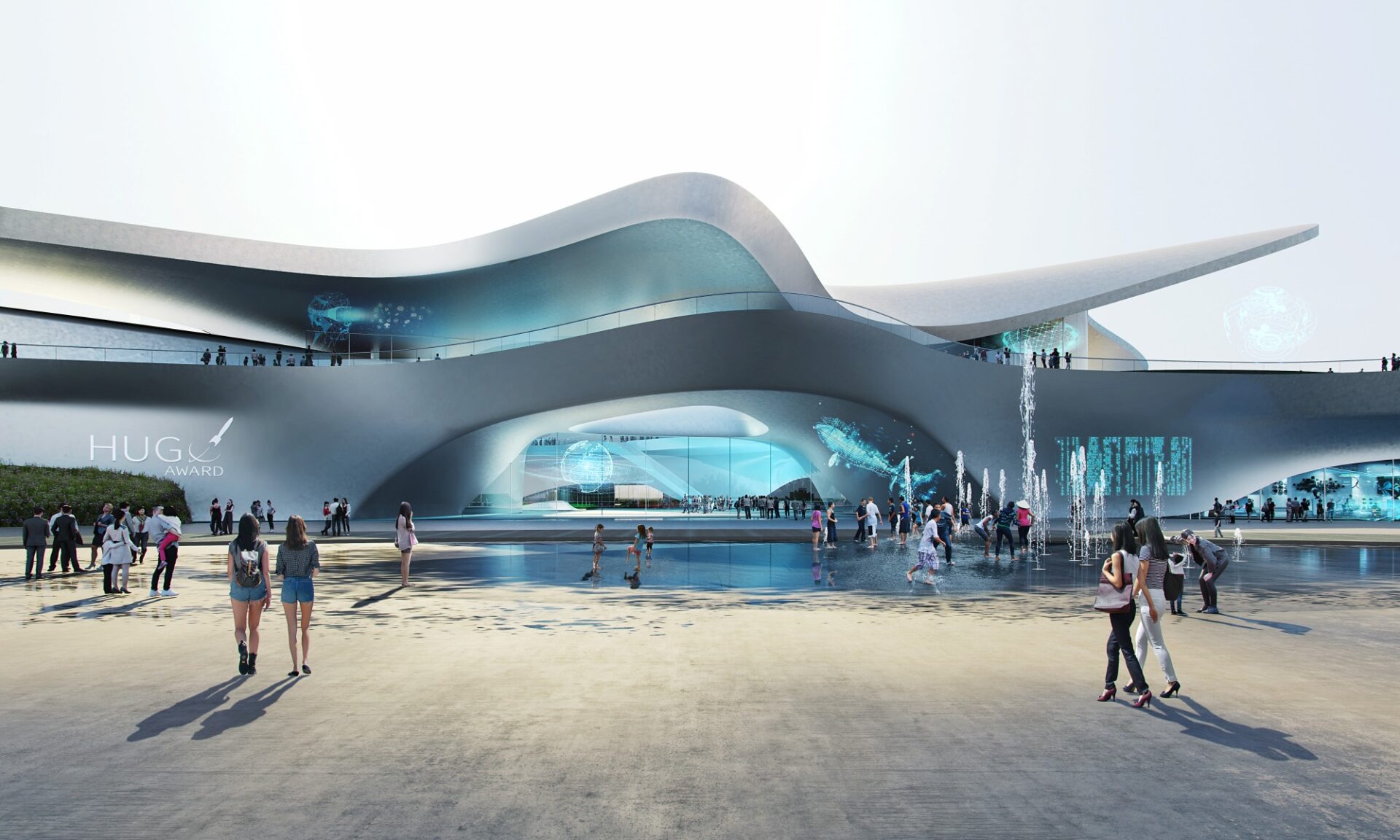 Hosting Worldcon and the Hugo Awards within the Chengdu Science Fiction Museum will be the first time the events have been held in China.
Hosting Worldcon and the Hugo Awards within the Chengdu Science Fiction Museum will be the first time the events have been held in China.
Images and Content Courtesy The Architects, ZHA.


